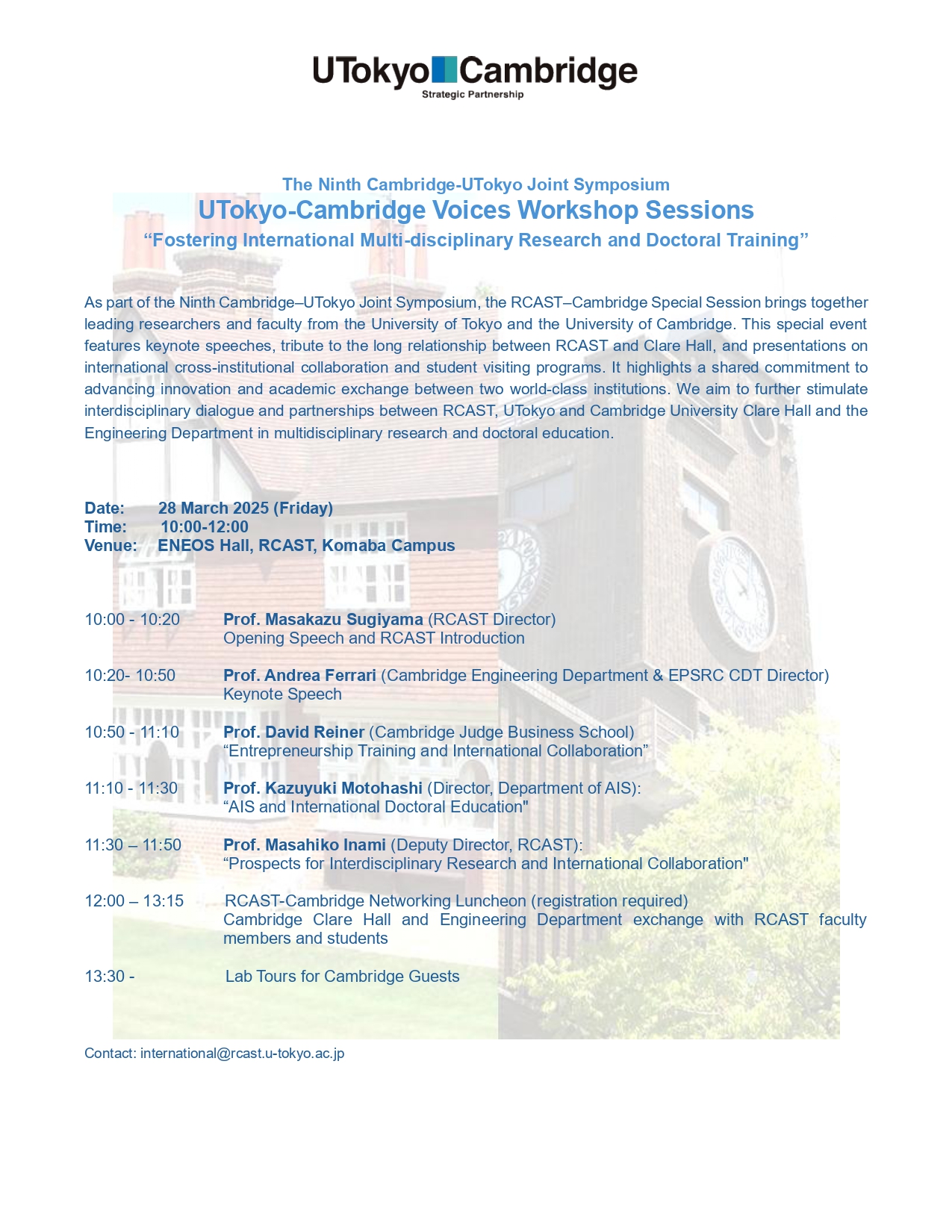Date: 28 March 2025 (Friday)
Time: 10:00-12:00
Venue: ENEOS Hall, RCAST, Komaba Campus
Speakers
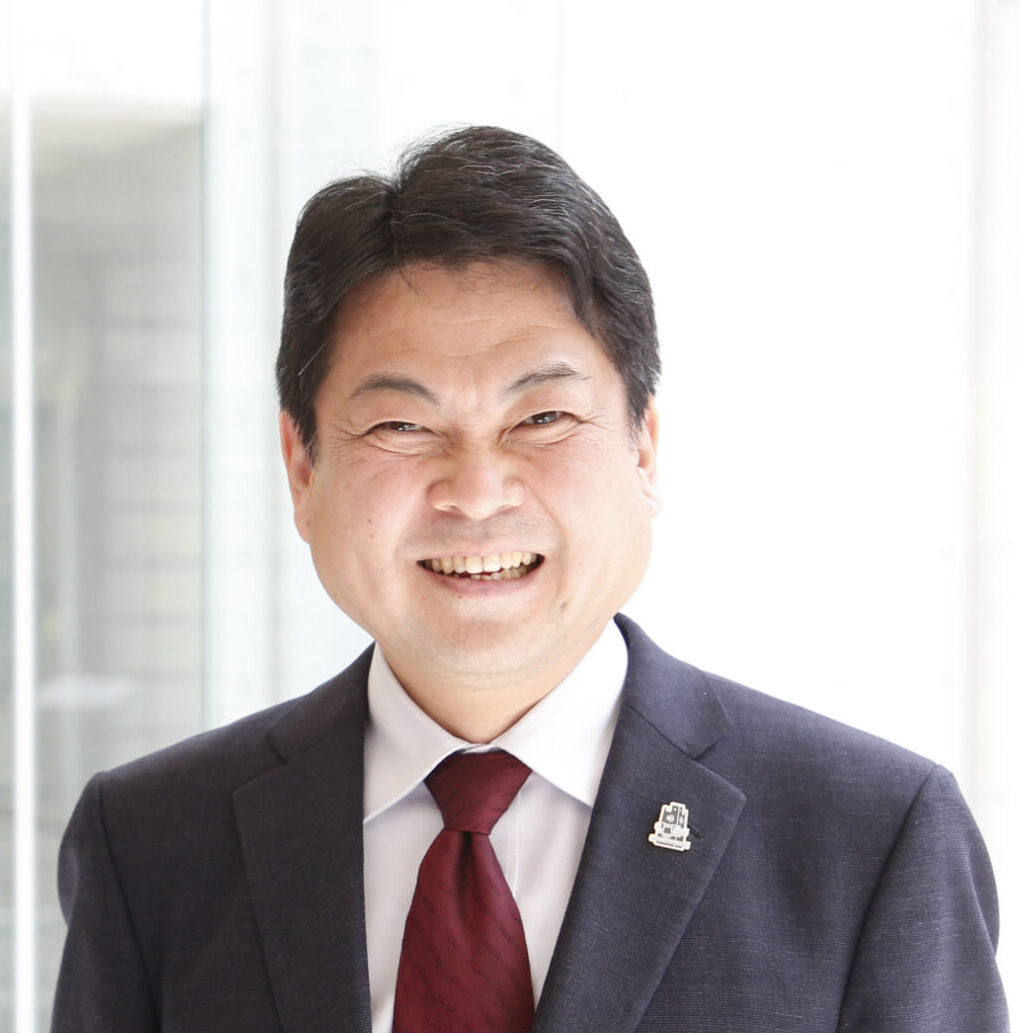
Masakazu Sugiyama
Director
Research Centre for Advanced Science and Technology
The University of Tokyo
Masakazu Sugiyama is he director at RCAST since 2022. He is a program manager of Japanese MOONSHOT program, aiming to realize CO2 capture and conversion to chemical feedstocks driven by renewable electricity. His major research topics are high-efficiency photovoltaic (PV) devices using the nano-epitaxial structures of III-V compound semiconductors. He is a recognized leader in the sustainable conversion of solar energy to next-generation fuels.
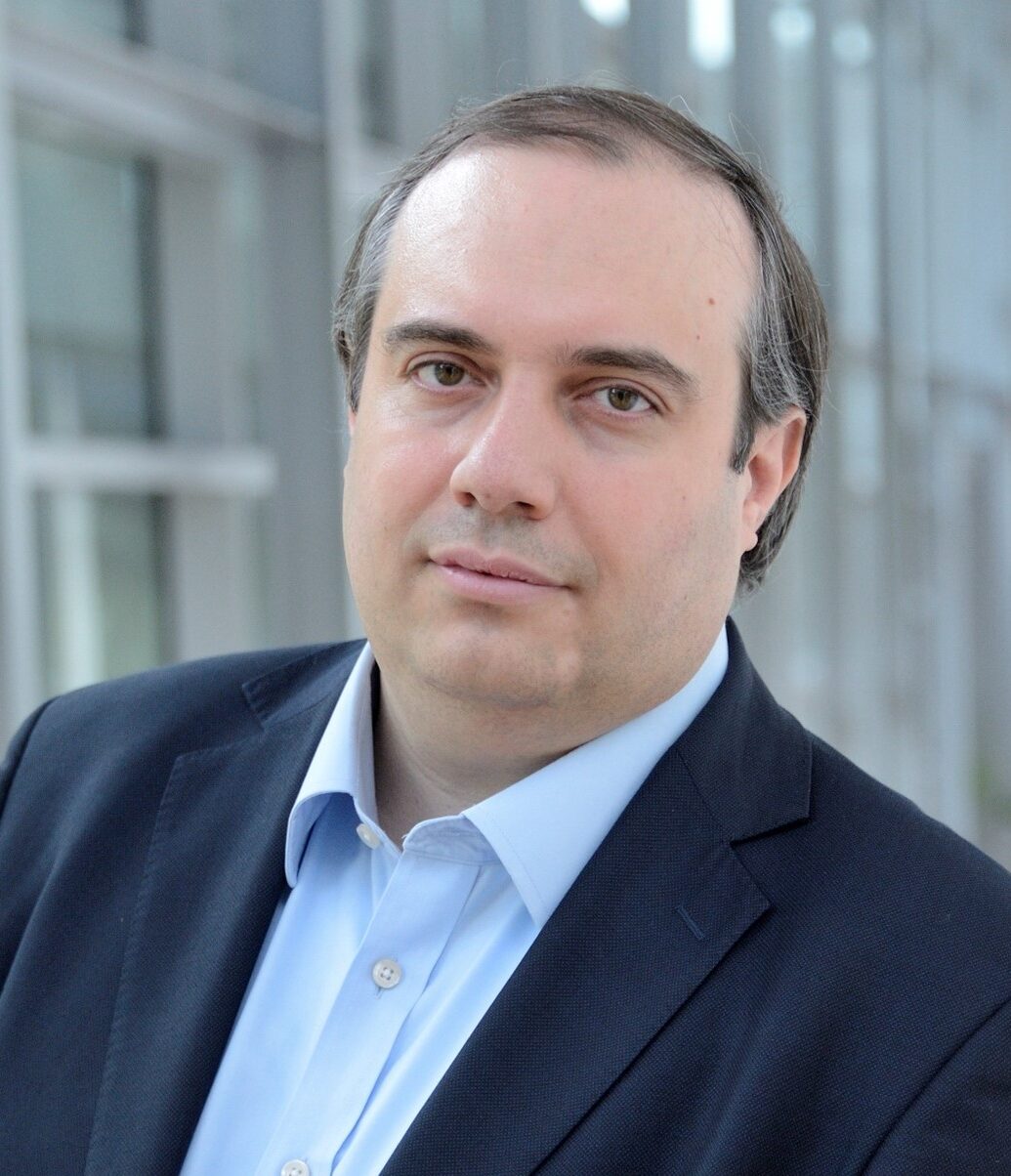
Andrea Ferrari
Professor
Engineering Department
Cambridge University
Andrea Ferrari is Professor of nanotechnology at the University of Cambridge and a Fellow of Pembroke College. He founded and directs the Cambridge Graphene Centre and the EPSRC Layered Materials Research Foundry. He co-Chairs the EPSRC Centre for Doctoral Training in 2D Materials for Tomorrow, the University of Cambridge Strategic Research Initiative in Quantum and Advanced Materials for a Sustainable Society (QAMSS), and the Graphene Flagship Coordination Panel of the Innovative Advanced Materials for Europe (IAM4EU) Partnership.
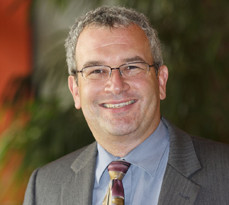
David Reiner
Professor of Technology Policy
Cambridge Judge Business School
David Reiner is Professor of Technology Policy and Assistant Director of the Energy Policy Research Group at Cambridge University. He is also a Research Associate of the Centre for Energy and Environmental Policy Research at MIT. His research focuses on energy and climate change politics, policy, economics, regulation, and public attitudes, with a particular focus on social license to operate. He is a leading expert on carbon capture and storage and greenhouse gas removal, and he has also published on retail markets, subsidy reform, low-carbon technologies, industrial decarbonisation, and the dynamics of demonstration.
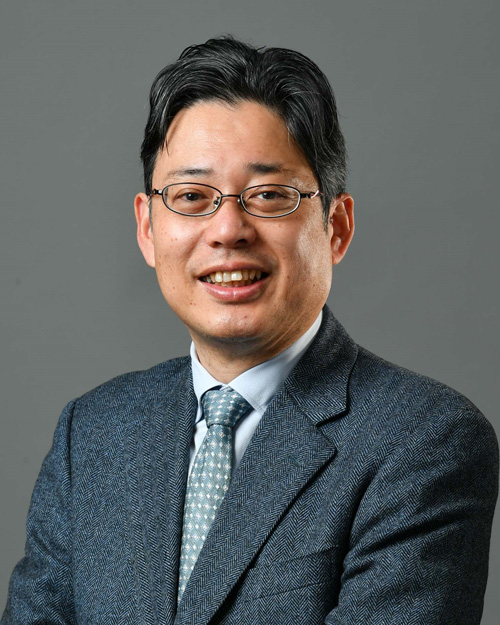
Kazuyuki Motohashi
Director
Department of Advanced Interdisciplinary Studies
Kazuyuki Motohashi joins the Walter H. Shorenstein Asia-Pacific Research Center (Shorenstein APARC) during the period of September 2014 to March 2015 as this year's Sasakawa Peace Fellow, from the University of Tokyo, where he serves as a professor at the Department of Technology Management for Innovation, Graduate School of Engineering. At Shorenstein APARC, he is conducting the research project, “New Channles: Reinventing US-Japan Relationship”, particularly focusing on innovation in Silicon Valley and its linkage with the Japanese innovation system.

Masahiko Inami
Deputy Director
Research Centre for Advanced Science and Technology
Masahiko (Masa) Inami is a Professor in the Research Center for Advanced Science and Technology at the University of Tokyo, Japan. He is also directing Inami JIZAI Body Project, JST ERATO. His research interests are in Augmented Human, human I/O enhancement technologies including perception, HCI, and robotics.
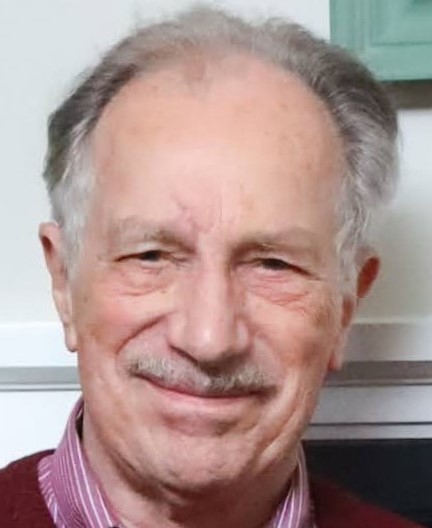
David Cope (Originally Scheduled Speaker)
Professor
Foundation Fellow
Clare Hall
University of Cambridge
David Cope is a graduate of The University of Cambridge and the London School of Economics and has been involved in promoting exchanges and collaborative research between the UK and Japan since his first mission to the country in 1983, when he was Environmental Team Leader with the International Energy Agency. This involvement has included other European countries and has covered matters as varied as official advice on the location of a new airport in the Ogasawara islands in the Pacific Ocean to the development of environmental conservation programmes in the Shiretoko Peninsula in the far north of Hokkaido, collaborating with the UK’s National Trust.
In recognition of his work over the years, in 2012, he was awarded the Order of the Rising Sun, with Rays and Rosette by the Emperor and Government of Japan.
In 1997, he accepted an invitation to become Professor of Energy and Resource Economics at Doshisha University and more recently became a Fellow of the Research Centre of Advanced Science and Technology at the University of Tokyo. He has for a considerable period also been a trustee of the Great Britain Sasakwa Foundation and has guided the Foundation’s support for UK-Japan research initiatives s across all areas of science and technology.
For fourteen years, from 1998 to 2012, he was the Director of the Parliamentary Office of Science and Technology at the UK Parliament in Westminster – and while there encouraged young Japanese researchers to come on research placements – and promoted collaboration on all aspects of parliamentary operations between the UK Houses of Parliament and the Japanese Diet.
His own original specialisation is energy technologies, especially for environmental protection – and he has closely studied and commented on the circumstances following the Great East Japan Earthquake and Tsunami of March 2011, especially the consequences for the Fukushima Dai-ichi and Onagawa nuclear power plants.

